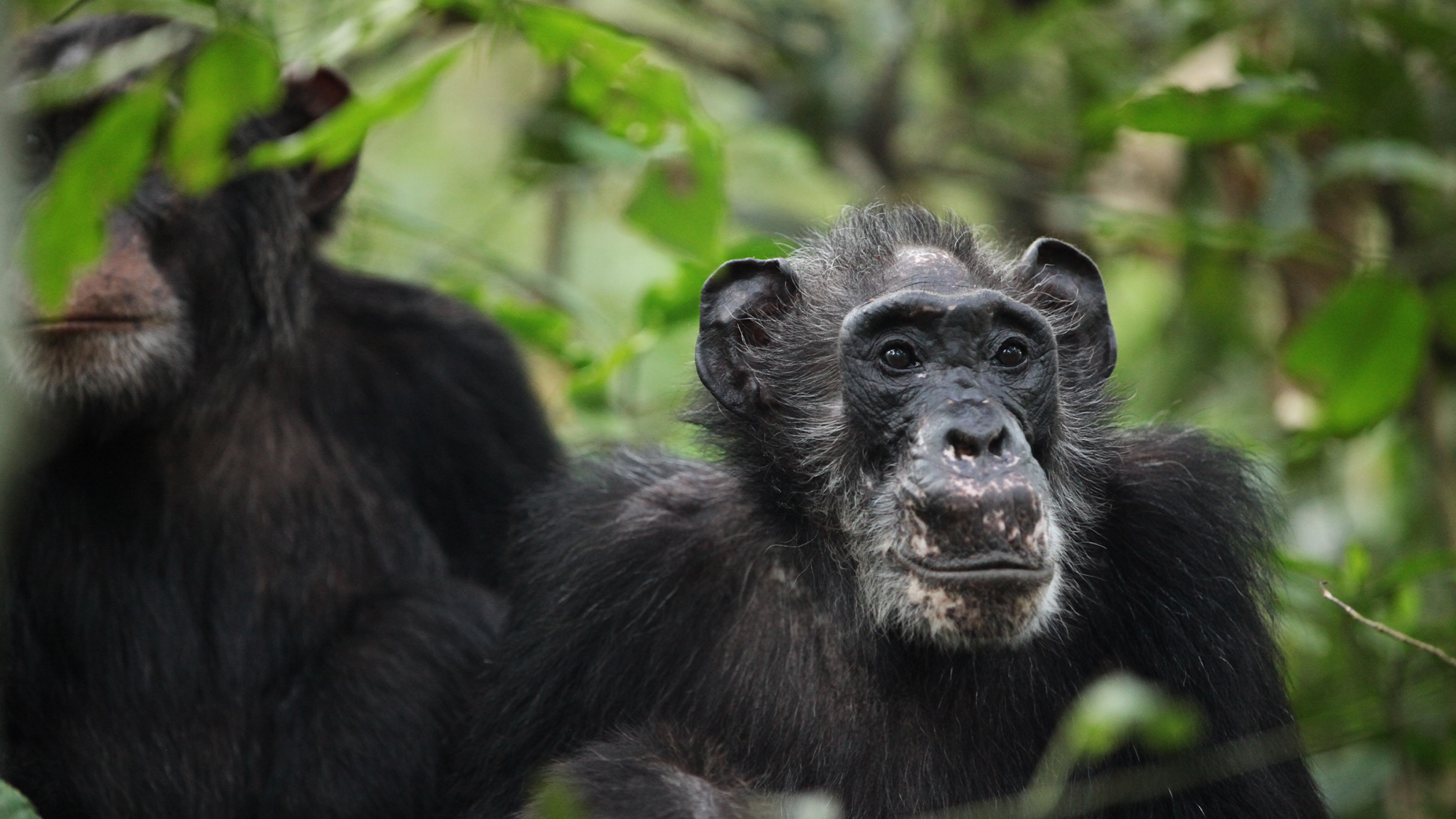

Living long lives past reproductive age is a real rarity for female members of the animal kingdom. Humans and some species of toothed whales are the only known animals to go through menopause and the reasons behind it are an evolutionary puzzle. A team of primatologists recently found that a group of wild chimpanzees in Uganda also show signs of menopause. The findings are described in a study published October 26 in the journal Science and could provide more insight into this rare biological phenomenon.
[Related: Adolescent chimpanzees might be less impulsive than human teens.]
In humans, menopause typically occurs between the ages of 45 and 55 and is characterized by a natural decline in reproductive hormones and the end of ovarian functions. Some symptoms in humans include chills, hot flashes, weight gain, and thinning hair. The evolutionary benefits of this process are still a mystery for biologists. It is also still unclear why menopause evolved in humans but not in other known long-lived primates.
“During our ongoing twenty five year study of chimpanzees at Ngogo in Kibale National Park, Uganda, we noticed that many old females did not reproduce for decades,” study co-author and Arizona State University primatologist Kevin Langergraber tells PopSci. “It’s a surprising trait from the perspective of evolution: how and why can natural selection favor the extension of lifespan past the point at which individuals can no longer reproduce? We need to know in what species it occurs and which it doesn’t as a first step [to that question].”
To look closer, the authors calculated a metric called the post-reproductive representation (PrR). This measurement is the average proportion of adult lifespan that an animal spends in its post-reproductive state. Most mammals have a PrR close to zero, but the team found that Ngogo chimpanzees have a PrR of 0.2. This means that the female chimpanzees in this group live 20 percent of their adult years in a post-reproductive state.
Urine samples from 66 female chimpanzees from different stages in their reproductive lives also showed that the transition to this post-reproductive state was marked by changes in hormones like gonadotropins, estrogens, and progestins.
While similar hormonal variations are also a way to tell that this transition is happening in humans, the post-reproductive chimpanzees were not involved in raising their offspring’s children. In these chimpanzees, the common grandmother hypothesis, where females live longer after menopause to help take care of future generations, does not appear to apply. This contrasts with some populations of orca whales, where grandmothers are a critical part of raising their offspring’s young to ensure their survival.
[Related: Nice chimps finish last—so why aren’t all of them mean?]
According to the team, there are two possible explanations for these longer post-reproductive lifespans. Chimpanzees and other mammals in captivity can have artificially long post-reproductive lifespans because they are protected from natural predators and some pathogens. Even though they’re a wild population, the Ngogo chimpanzees could also be similarly protected and live artificially long lives. They live in a relatively remote area that is undisturbed by logging and hunting by humans and are exposed to fewer human pathogens. Their current habitat could also be closer to what existed in their evolutionary past compared with other populations of primates that are more affected by humans.
“The study both illuminates and raises questions about the evolution of menopause,” University of Exeter evolutionary biologist Michael Cant wrote in a related review on the study. “It also highlights the power of difficult long-term field studies–often run on small budgets and at constant risk of closure–to transform fundamental understanding of human biology and behavior.” Cant is not an author of the study.
Langergraber says future studies like this one could answer the question of how common substantial post-reproductive lifespans have been throughout chimpanzee evolutionary history and if impacts from humans have kept their survivorship rates artificially low.
